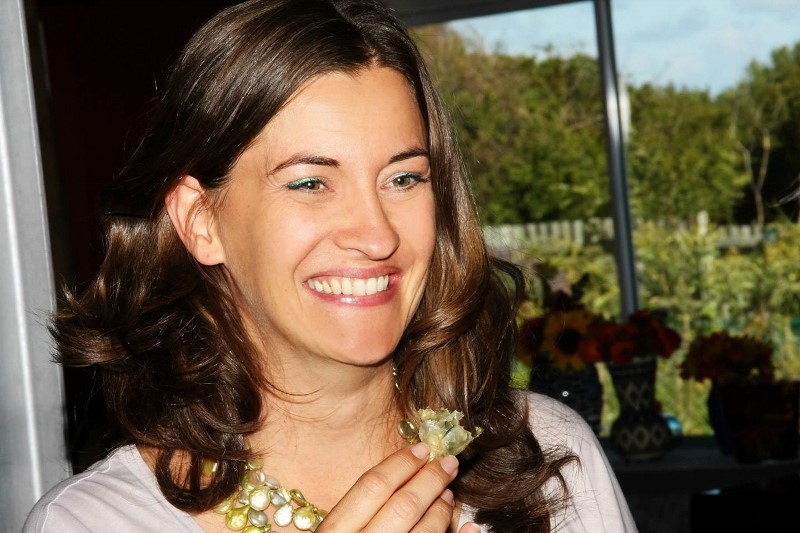If research resilience in the time of COVID-19 was a person then that'd be Dr Jenny Coetzee, a South African Medical Research Council (SAMRC)’s Research Capacity Development (RCD) funded Postdoctoral Fellow at the Perinatal HIV Research Unit (PHRU) – one of the close associate organisations of the SAMRC.
In an unexpected but positive turn of events, the COVID-19 pandemic has created an opportunity for Dr Coetzee to do much more work rapidly, and with a huge amount of support from multiple sectors – she founded the African Potential Foundation, an exciting initiative that seeks to enable a new generation of innovative, flexible, resilient and caring leaders.
In addition to her SAMRC postdoctoral fellowship, her work has earned her the title of Principal Researcher and Head of Prevention in Key Populations, as well as a Wellcome Trust Post Doctoral Fellowship.
Career Journey: Where did it all begin?
Jenny's research career journey began twelve years ago when, what started as a master's degree in psychology, quickly turned into a passionate drive to ensure evidence-based, comprehensive services for highly vulnerable and hard to reach populations such as sex workers, transgender women, and clients of sex workers.
She has moved seamlessly between programme implementation and cutting-edge community research with the view of giving back to the community, and before she knew it, fate had already directed her steps.
Prior to entering the SAMRC Postdoctoral Fellowship Programme (2019 – 2022) that is funded through and administered by the organisation's Research Capacity Development (RCD) Division, she had been researching sexual and reproductive health access amongst sex workers in Jo'burg City Deep. In 2013, she launched a sex worker HIV and violence prevention programme in Soweto, which continues to be successfully funded to date.
Through the SAMRC Internship, she registered for PhD in Public Health in 2016, which she completed within two and a half years with no reviewer queries or changes required, and four publications. The study looked at factors associated with HIV and HIV drug resistance amongst female sex workers in Soweto, under the supervision of Prof Glenda Gray and Prof Rachel Jewkes, who she says remain her mentors to date.
Having completed such a successful PhD,and discovering some 'world-first' findings, she wanted to ask the same question, but on a national level. Previous studies on sex work had all focused on major metropolitan areas with no real national picture of sex work. Ambitiously, she wanted to reflect it to the full continuum of vulnerability – from childhood trauma to current violence exposure, mental health to sexual behaviours.
"I believe strongly that life is complicated, and our response to health issues needs to reflect an understanding of this, and not be one dimensional. We cannot assume that because we gave someone a condom, that they can or will use it. Likewise, we cannot assume that treatment adherence is as simple as taking a pill every day – things are complicated", she said.
Current research and its social impact: navigating research in the time of Covid-19
She currently leads three postdoctoral bodies of work:
- The SIB national study on sex work which is fully-funded by the SAMRC.
- The study of male clients of sex workers, cofunded through the Wellcome Trust. The course is currently halted due to the COVID pandemic, and primary data collection will begin once it is safe to do so. But this has allowed her to focus on other areas of work during the pandemic.
- The SAMRC is also supporting her in setting up the African Potential Foundation - that aims to create a funding mechanism for scholars such as ourselves, in Africa, by Africa, and for Africa. It is an incubation hub for innovation and development. www.africanpotential.com
While there too many to mention, her most recent achievements and recognition and other innovative breakthroughs include more than nine prestigious awards including her current SAMRC Postdoctoral Fellow 2019-2022; the Plenary Address for the REDCap International Conference August 2017, and again in September 2020; the Invited speaker at the REDCap Africa Day 2016 and the Medical Research Council National Health Scholar 2014-2018
Future endeavours: ambitious but realistic.
So far, I have completed my work on the SIB study, and am writing up findings. I am hoping that we can collect primary data for the male client's study by early 2021", said Jenny.
Jenny has set herself a big task of raising R1.2 billion for the African Potential Foundation's first project that is aimed at providing high-quality fabric masks to high-density, impoverished settings to prevent the spread of COVID19 and has so far raised R550,000 from one corporate – other multiple large corporates coming on board from various sectors.
She aims to complete her Wellcome Trust study by the end of 2021 and then focus 100% on the African Potential Foundation to build a fellowship funding mechanism that outlasts all of our lifetimes, and which we can all be proud of.
In part, Jenny attributes her successful journey to the support she received from SAMRC’s RCD.
"The RDC funding award has contributed to my career as a health scientist and researcher as well as an active member of society", she added.
Her message to current and potential beneficiaries of the RCD programme or the next generation of health scientists: "Change lanes as often as you need to and don't be forced into a way of thinking that stifles your innate creativity".

